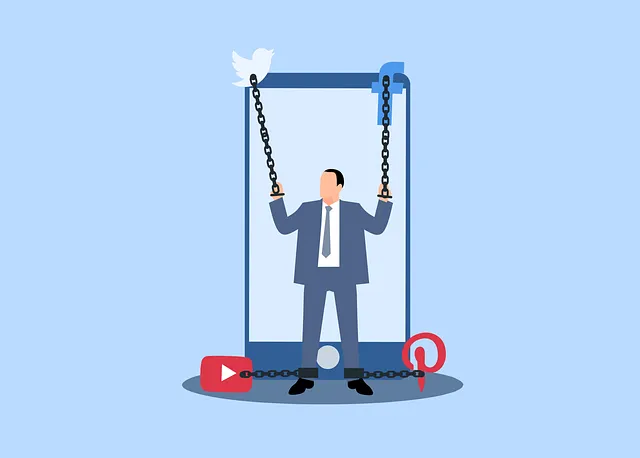Emotional Intelligence (EI) is a vital tool for personal growth and well-being, especially when navigating mental health challenges. At Kaiser in Littleton, mental health support focuses on cultivating EI through self-awareness, empathy, and effective communication. Self-reflection and introspection help individuals recognize and manage their emotions, leading to better decision-making and stress management. Empathy, developed through active listening and emotional regulation techniques, fosters deeper connections and supportive environments. Managing emotions involves recognizing physical cues, regulating feelings with techniques like mindfulness, and resolving conflicts empathetically. By integrating these practices, Kaiser in Littleton empowers individuals to enhance their EI, improve relationships, and access accessible mental health help.
Emotional intelligence (EI) is a powerful tool that can transform personal and professional relationships. In today’s fast-paced world, understanding and managing emotions effectively has become more crucial than ever. This article delves into the key components of building EI, as guided by Littleton and Kaiser’s expertise in mental health. From self-awareness to empathy, emotion regulation to active listening, discover practical strategies to enhance your emotional intelligence and improve overall well-being.
- Understanding Emotional Intelligence: Unlocking Its Potential
- The Role of Self-Awareness in Building Emotional Intelligence
- Developing Empathy: A Key Component for Effective Communication
- Managing and Regulating Emotions: Strategies for Emotional Control
- Practicing Active Listening: Enhancing Connections and Relationships
Understanding Emotional Intelligence: Unlocking Its Potential

Emotional intelligence (EI) is a powerful tool for personal growth and well-being, offering a unique pathway to enhancing mental health awareness. At Kaiser in Littleton, how to get mental health help is often centered around cultivating EI, as it equips individuals with the skills to recognize and manage their own emotions, as well as understand and empathize with others. This ability to navigate complex emotional landscapes can significantly contribute to anxiety relief and overall mental resilience.
By developing emotional intelligence, individuals can improve their interpersonal relationships, make more thoughtful decisions, and enhance their problem-solving abilities. It’s about understanding the interconnectedness of emotions, thoughts, and behaviors—a key to unlocking one’s full potential. This process involves self-reflection, empathy, and effective communication, all of which are essential aspects of mental health care and well-being.
The Role of Self-Awareness in Building Emotional Intelligence

Self-awareness is a cornerstone in building emotional intelligence. It involves recognizing and understanding your emotions, strengths, weaknesses, and how they impact your thoughts and actions. This process begins with introspection—taking time to reflect on your feelings, reactions, and motivations. By cultivating this inner gaze, individuals can gain profound insights into their emotional landscape, enabling them to make more thoughtful decisions and build stronger relationships.
In the quest for enhanced emotional intelligence, focusing on self-awareness paves the way for better emotional regulation and inner strength development. According to research, individuals who are mindful of their emotions are better equipped to manage stress, including anxiety relief, as they can respond calmly rather than reacting impulsively. For instance, a study by Kaiser Permanente in Littleton, Colorado, highlighted how mental health support services emphasizing self-awareness led to improved emotional well-being and reduced symptoms among participants.
Developing Empathy: A Key Component for Effective Communication

Developing empathy is a cornerstone for cultivating emotional intelligence and enhancing communication skills. It involves understanding and sharing the feelings of others, fostering deeper connections. This ability is crucial in various aspects of life, from personal relationships to professional settings. When individuals empathize, they create a supportive environment where people feel heard, validated, and understood, leading to improved collaboration and conflict resolution.
At Littleton’s Stress Management Workshops Organization, we recognize the power of empathy in building healthy communities. Our programs focus on teaching effective communication strategies, including active listening and emotional regulation techniques, as part of our mission to help individuals navigate life’s challenges with resilience. By fostering empathy, we empower people to offer genuine support, resolve conflicts constructively, and create a more compassionate society, all of which are essential aspects of mental health care, as highlighted by Kaiser.
Managing and Regulating Emotions: Strategies for Emotional Control

Managing emotions is a vital part of emotional intelligence development. It involves recognizing and understanding your feelings, as well as learning to control them in healthy ways. This process begins with awareness – paying attention to the physical cues your body gives when certain emotions arise. Once you’ve identified an emotion, you can start to regulate it. Techniques such as deep breathing exercises or mindfulness meditation can help calm down strong feelings and provide a moment to think before acting on them.
At Kaiser, for instance, Littleton how to get mental health help is often centered around these very strategies. Promoting emotional well-being involves teaching individuals effective conflict resolution techniques that allow them to navigate challenging situations with empathy and self-control. By integrating these practices into daily life, people can improve their emotional intelligence, fostering healthier relationships and enhancing overall emotional resilience.
Practicing Active Listening: Enhancing Connections and Relationships

In an era where mental health awareness is increasingly recognized as vital for overall well-being, understanding and practicing emotional intelligence (EI) has become a powerful tool. Organizations like Kaiser in Littleton emphasize the importance of EI in fostering healthy relationships and effective communication. One key aspect to enhancing these connections? Active listening.
By truly paying attention to what others are saying—and not just hearing the words—individuals can cultivate deeper levels of understanding and empathy. This simple yet profound practice, encouraged through Compassion Cultivation Practices and Self-Care Practices, strengthens bonds, improves collaboration, and creates a supportive environment. Through active listening, individuals can build stronger relationships, both personally and professionally, ultimately enhancing their overall emotional intelligence.
Emotional intelligence is a powerful tool for personal growth and strengthening relationships, as highlighted by Littleton’s approach to mental health care through Kaiser. By understanding and managing emotions, individuals can improve their communication, build empathy, and create more fulfilling connections. Incorporating strategies like self-awareness, active listening, and emotional regulation into daily life can significantly enhance overall well-being, as shown by various studies and practices within the field. Investing time in developing these skills is a valuable step towards achieving better mental health and fostering healthier relationships.






